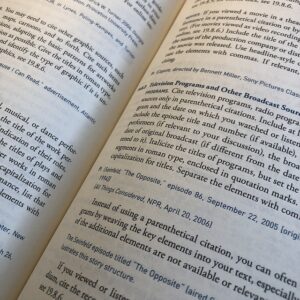Translation services for UK Research Papers
Introduction
In the realm of academic excellence, the United Kingdom stands as a beacon of research innovation and scholarship. The translation of these research papers from their original language into other tongues is a critical service that transcends linguistic barriers and democratizes knowledge. This article delves into the intricacies of translation services for UK research papers, exploring their significance, the impact they have on a global scale, economic considerations, technological advancements, policy landscapes, challenges faced, and their future prospects. Readers will gain a comprehensive understanding of how these services shape the dissemination and reception of knowledge across borders.
Understanding Translation Services for UK Research Papers
Translation services for UK research papers encompass the process of converting scholarly works from English to other languages and vice versa. This multifaceted field combines linguistic expertise with specialized knowledge in various academic disciplines. The historical context of these services dates back to the Renaissance, where translations facilitated the exchange of ideas and knowledge. Today, they are integral to global research communication, ensuring that scholars worldwide can access and contribute to UK-based studies.
Global Impact and Trends
The international influence of translation services for UK research papers cannot be overstated. They enable researchers from different corners of the globe to participate in scientific discourse by providing access to a vast array of research that might otherwise remain inaccessible due to language barriers. Key trends in this sector include the rise of machine translation, the increasing demand for translations in multidisciplinary fields like data science and biotechnology, and the growing emphasis on inclusivity in global academia. Regions with emerging economies are particularly affected, as they leverage these services to keep pace with scientific advancements.
Economic Considerations
The economic landscape of translation services is shaped by market dynamics that include competition among translation providers and the demand for specialized translators who understand both the source and target languages, as well as the subject matter. Investment patterns in this sector are driven by technological innovation and the need to cater to an increasingly globalized academic community. These services play a pivotal role in economic systems by fostering knowledge exchange and contributing to the internationalization of research output.
Technological Advancements
The field has seen significant technological advancements, particularly with the integration of artificial intelligence (AI) and machine learning (ML) algorithms. These technologies have revolutionized the speed and accuracy of translations, though they are not yet a substitute for human expertise. The future potential of AI-driven translation services promises even more efficient and nuanced translations, potentially reducing the time and cost associated with these services.
Policy and Regulation
A tapestry of policies and regulations governs translation services for UK research papers. These include intellectual property rights, data protection laws, and standards for quality assurance. The European Union’s regulations, for example, significantly impact how translation services operate across member states. Policies aimed at encouraging international collaboration in research also play a role in shaping the landscape of these services.
Challenges and Criticisms
Despite its importance, translation services for UK research papers face several challenges, including ensuring accuracy and cultural relevance, maintaining confidentiality, and dealing with the rapid pace of scientific publication. Criticisms often focus on the potential for misinterpretation or oversimplification in translations. Strategies to overcome these issues involve investing in trained professionals, leveraging technology ethically, and fostering collaboration between translation services and researchers.
Case Studies
Several case studies exemplify the successful application of translation services for UK research papers. One such example is the Human Hydatidiasis Outcome Research (HHOUR) Network, which has translated its findings into multiple languages, increasing global awareness and improving patient outcomes. Another case study involves a collaboration between UK researchers and international partners, where translations have led to breakthroughs in understanding rare genetic disorders.
Future Prospects
The future outlook for translation services for UK research papers is one of growth and innovation. Potential growth areas include personalized medicine and climate change research, where the need for multilingual communication is paramount. Emerging trends suggest a greater emphasis on interdisciplinary collaboration and the integration of cultural context into translations. Strategic considerations must focus on adapting to technological advancements, addressing policy changes, and ensuring the highest standards of quality and ethical practice.
Conclusion
Translation services for UK research papers are indispensable in bridging linguistic divides and fostering global academic collaboration. They play a pivotal role in expanding the reach and impact of UK research, ensuring that knowledge transcends borders and contributes to the betterment of humanity. The insights provided throughout this article underscore the critical nature of these services and their importance within the broader landscape of academic exchange.
FAQ Section
Q: How do translation services for UK research papers ensure accuracy?
A: Translation services employ a combination of skilled human translators, subject matter experts, and, where appropriate, advanced AI and ML algorithms to ensure the highest level of accuracy in translations.
Q: Are machine translations reliable for UK research papers?
A: While machine translation has improved significantly, it is not yet a reliable substitute for human expertise, especially when dealing with complex academic texts that require nuanced understanding and specialized terminology.
Q: What role do policies play in translation services for UK research papers?
A: Policies governing translation services dictate standards for quality assurance, protect intellectual property, and ensure data privacy, all of which are critical to maintaining the integrity of translations.
Additional Resources
For readers interested in exploring the topic further, a list of additional resources is provided below:
- “Translation Services for Academic Research: Bridging the Language Gap” – A white paper discussing the role of translation services in academic research and their impact on global collaboration.
- “The Evolution of Translation Technology in Scholarly Publishing” – An article examining how technological advancements have shaped the field of translation in academia.
- “Navigating the Policy Landscape of International Research Collaboration” – A comprehensive guide to understanding the policies that affect research collaboration across borders, including the role of translation services.
- “Best Practices for Translating Scientific Literature” – A set of guidelines developed by a consortium of translation experts and researchers, focusing on maintaining accuracy and cultural relevance in translations.

Navigating UK Research Papers: Professional Translation Services Essential
Professional translation services are indispensable for UK researchers aiming to publish or secure funding, ensuring document authenticity and accessibility globally.…

Navigating UK Academia: Translation Services for Research Papers
Translation services for UK research papers are vital to ensure global accessibility and academic integrity. They navigate referencing, formatting, and…

Publishing Research in UK Journals: Language Support Strategies
UK journal publications demand meticulous formatting, strict ethical adherence, and clear communication. Translation services for UK Research Papers are vital…

Translation Services: Enhancing UK Research Paper Communication
Translation services for UK Research Papers are vital to navigate academic benchmarks, enhance global accessibility, and foster international collaboration. They…

Unlocking Global Knowledge: Translating UK Research Papers for Outreach
Translation services for UK research papers are essential for global academic progress. They overcome language barriers, enhance accessibility, and boost…

Mastering UK Research Paper Standards via Professional Translation
Translation services for UK Research Papers are critical for global researchers aiming to publish locally, ensuring compliance with stringent criteria…

Navigating UK Research Paper Translation: Ensuring Academic Success
Translation services for UK research papers are essential to navigate linguistic barriers, ensure accuracy, maintain academic integrity, and increase publication…

Publish Your Research: Navigating UK Journals with Translation
Foreign researchers seeking to publish in UK academic journals face linguistic barriers and style adjustments. Professional translation services are vital…

Translation Services: Navigating UK Academic Research Standards
Translation services for UK research papers are vital to overcome linguistic barriers and enhance global reach. They offer subject matter…

Mastering UK Research Paper Translation: Expert Guidance
Translating UK research papers requires specialized services emphasizing academic integrity, cultural sensitivity, and subject matter expertise. Quality translations enhance credibility…